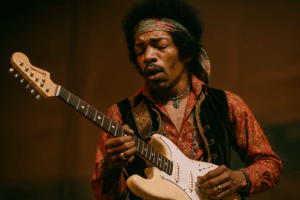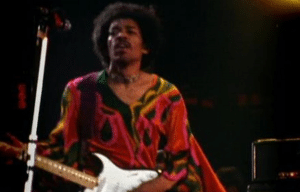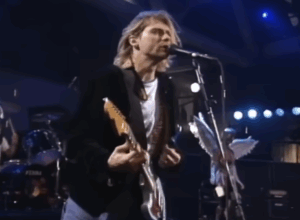Ringo Starr Calls Out the Worst Beatles Recording Session—and He Wasn’t Alone

via Ringo Starr / YouTube
By the late 1960s, tension within The Beatles was reaching its peak. Once united by their creative energy, the band members were now more likely to clash in the studio than collaborate smoothly. Even songs that were musically solid could dissolve into long, grueling sessions when disagreements took hold.
Among the four, Ringo Starr was often seen as the peacekeeper, the one least likely to openly complain. Yet even he had limits. In one instance, Starr openly described a particular recording session as “the worst” he had ever endured with The Beatles. His rare frustration showed just how difficult the atmosphere had become.
The song at the center of this discord was Paul McCartney’s “Maxwell’s Silver Hammer.” What McCartney envisioned as a quirky, playful track became, for the others, an exhausting exercise in perfectionism and persistence.
Ringo Starr’s Breaking Point
Ringo Starr rarely let his emotions get the better of him, but the recording of “Maxwell’s Silver Hammer” pushed him to the edge. As he later recalled, the band spent an unreasonable amount of time going over the track, repeating takes until exhaustion set in. For someone who usually enjoyed the flow of recording, this felt unbearable.
“The worst session ever was ‘Maxwell’s Silver Hammer,’” Starr later told Rolling Stone. “It went on for f***ing weeks. I thought it was mad.” His candidness reflected the broader frustration within the group. To Starr, the track was not worth the endless tinkering McCartney demanded.
Paul, however, remembered things differently. In his telling, the recording lasted three days, not weeks. From his perspective, the process was no different than his usual pursuit of detail. But to his weary bandmates, every additional hour in the studio was a reminder of just how divided the group had become.
John Lennon’s Distance and George Harrison’s Frustration
John Lennon wasn’t even present for most of the “Maxwell’s Silver Hammer” sessions. Recovering from a car accident, he heard secondhand from George Harrison and Ringo about the strain Paul was putting them through. Lennon later commented that McCartney had effectively ground his bandmates “into the ground” with his persistence.
Lennon also claimed that the song cost more to record than any other on the Abbey Road album. For him, the result was another typical McCartney piece—light, playful, and, in his eyes, not worth the trouble. He even suggested he could have made the track better had he been there to shape it himself.
Meanwhile, George Harrison expressed his own discontent with Paul’s methods. Harrison described McCartney’s tendency to push “fruity songs” onto the group, using “Maxwell’s Silver Hammer” as a prime example. For Harrison, these tracks were written with a younger audience in mind and drained the band of its patience and energy.
View this post on Instagram
Paul McCartney’s Inspiration and Legacy of the Song
Despite his bandmates’ disdain, Paul McCartney stood firmly by “Maxwell’s Silver Hammer.” For him, the song wasn’t rooted in personal stories or deep meaning but rather in a love for whimsical storytelling. It was a musical sketch, a “silly story” about characters he simply invented.
“Some of my songs are based on personal experience, but my style is to veil it,” McCartney explained. “A lot of them are made up, like ‘Maxwell’s Silver Hammer.’ It’s just like writing a play: you don’t have to know the people, you just make them up.” His defense made clear that he viewed the song as a creative experiment, not a misstep.
Though many critics and fans have echoed Harrison, Starr, and Lennon’s complaints over the years, the track remains part of The Beatles’ legacy. It represents not only McCartney’s playful imagination but also the deep fractures within the group at the time. In hindsight, “Maxwell’s Silver Hammer” is remembered less for its melody and more for the cracks it revealed in one of the greatest bands in history.
https://twitter.com/ceofjohnlennon/status/1834225814591635547












